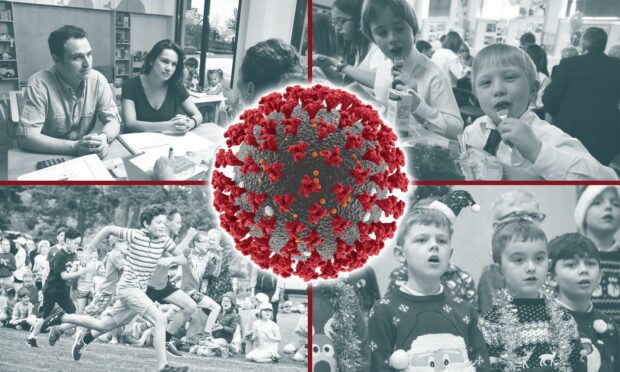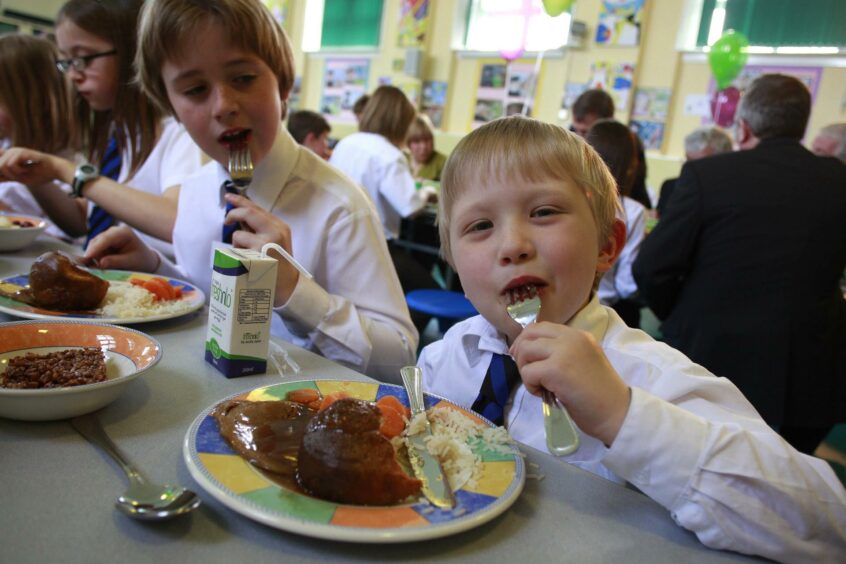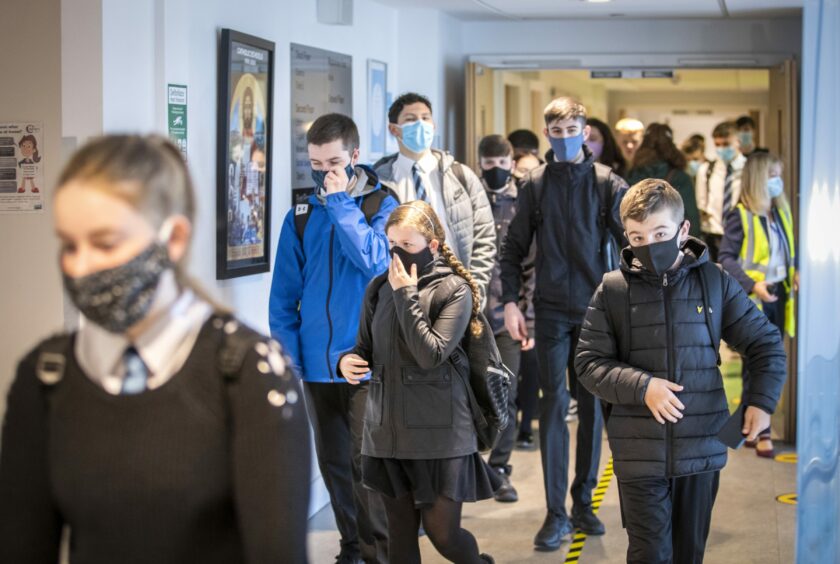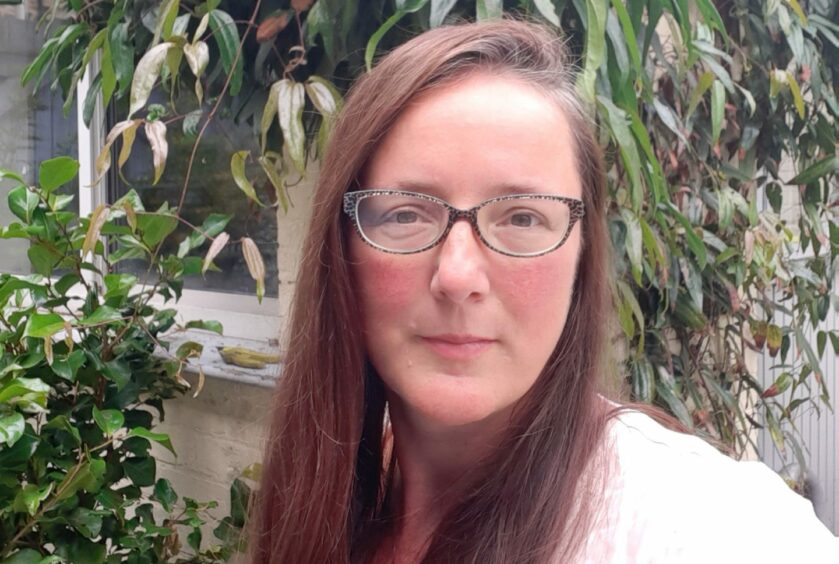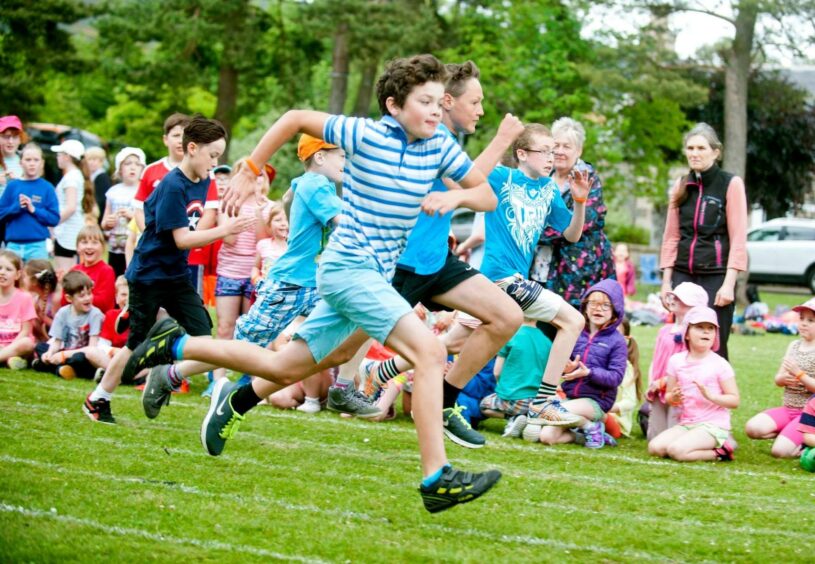Will our kids’ school days ever be the same again?
That’s the question on parents’ lips as we enter Year Three of Covid restrictions in schools.
Parents’ evenings, sports days, school concerts, even eating in the school dining hall – all are staples of the school experience for children and parents.
But is Covid now merely an excuse for not letting kids get on with normal life?
The longer the current set-up remains, the more it becomes the new ‘normal’. Could these fundamentals of school life be gone forever?
Guidance has changed – but is school really back to normal?
The Scottish Government implemented changes to existing guidance in February, removing restrictions on assemblies and allowing in-person visits if “appropriately risk assessed”. Limits on school trips were also removed, “with some ongoing requirements”.
The administration said its priority was keeping schools safe for pupils and staff, and that their schools guidance continues to be based on public health and clinical advice.
It added that most of its school restrictions have already been, or will be, lifted following the Easter holidays.
And while the Scottish Government now refers to an “epidemic” rather than a “pandemic”, the return to normality in schools remains patchy and inconsistent across the north and north-east.
The hope is that the post-Easter term will finally see a return to something approaching normal school life.
But while some pupils are already back in the dining hall for lunch, those at many schools continue to eat at their classroom desks as risk assessments are conducted.
And though in-person events such as parents’ evenings and concerts can resume, several councils are still liaising with school managers and teaching unions over their return.
Nervousness about whether schools will fully return to normal
Amid mounting frustration from parents and pupils alike, Nicola Sturgeon relaxed rules on the wearing of face masks in secondary school classrooms on February 28.
However, pupils must still wear face coverings elsewhere in schools while not in class.
Meanwhile, having previously indicated that she was considering relaxing face mask rules for the general public, the First Minister announced on March 15 that they were to remain mandatory for the general public in public settings indoors.
This has led parents’ campaign group UFT Scotland to express nervousness about when, or indeed if, schools will return fully to pre-pandemic routines.
UFT Scotland has long fought against first, school closures, and then, what they saw as over-reaching restrictions in schools.
‘Covid is being used as an excuse’
Group organiser Jo Bisset told the Press and Journal that the Scottish Government had created a situation where adults are now more free to live their lives than children.
“Adults lives are to a greater extent back to normal, and children’s lives are far from normal,” she said. “It’s that disparity which parents find confusing and annoying.
“Throughout this pandemic we’ve seen Covid being used as an excuse to cancel a whole range of vital activities.
“Sports days, nativity plays, parents’ evenings – these are all important fixtures in the school calendar which have been cast aside.
“Now, despite society in general returning to normal, all across Scotland there is still no sign of some of these events returning. These are staples of school life and they must return immediately.”
‘School will get back to normal if we make it happen’
There is a sense among some parents – certainly judging by social media – that those in power just can’t bring themselves to let their kids live a normal school existence again.
But Ms Bisset believes normality can return tomorrow, if only the will is there.
“Schools will get back to normal if we make it happen. There’s no reason why schools shouldn’t go back to normal. Absolutely no reason.
“If adults can congregate and eat their food in restaurants, cafes and bars like they are around the country at the moment, why can’t kids?”
She branded the Scottish Government “weak” in the face of pressure from teachers’ unions, “giving the impression that schools are somehow these terribly dangerous environments.”
Parents’ group says ‘no evidence’ eating lunch at desk makes any difference
Face masks in schools were scrapped in England in January, putting pressure on Ms Sturgeon to follow suit north of the border.
“English kids were out of masks on January 27, and they haven’t been in masks since,” said Ms Bisset.
“They’ve had less school closures, less restrictions, and actually the bottom line is that there are less positive tests in England than there are in Scotland.
“So whatever mitigations they’re putting in place in Scotland, it’s not having any impact. They can’t turn around and say that this is having any positive impact.
“There is no public health benefit that they can prove. Where is the scientific evidence that children eating their lunches at their desks in their classrooms rather than the dining hall has any public health benefit?
“And now that they’ve done it, there’s no evidence to say that it’s had any impact at all. But they carry on doing it anyway.
“That’s been two years now. It’s utterly pointless. And it takes away from children’s experience of their education.
“If you add up all of these measures – one-way systems, tape on the ground, masks, ‘no-go’ areas, non-stop testing – what you end up with are schools that are Covid-coercive environments.
“This isn’t the kind of semi-medical environment you want your kids to spend seven hours a day in.
“It’s not like popping into the supermarket for 10 minutes. This is seven hours a day, day in, day out for years now for these kids.
“This is having an impact on our children. It’s having an impact on their mental health and their development.”
‘We have nowhere near seen the full iceberg of what we’ve created here’
Of particular concern long-term is that, in terms of the full impact, the worst is yet to come, according to Ms Bisset.
“Certainly around early last year, it was like a tidal wave of terror for kids.
“And what we’re seeing now – and this is anecdotal – is children as young as P4/5/6/7 suffering behaviourally.
“These poor kids, their heads are just fried. I am genuinely concerned about what we’re going to see now among younger children, the impact it’s had on the subtle parts of their social and behavioural development.
“We have nowhere near seen the full iceberg of what we’ve created here.”
A Scottish Government spokeswoman said: “Covid is still a significant public health risk. There are currently a record number of people in hospital in Scotland with the virus. Our priority throughout the pandemic has been keeping schools safe for pupils and staff.
“Most safety measures in schools, including those affecting sports day events, eating in communal spaces and parents’ evenings, have already been, or will be, lifted following the Easter break.
“Our schools guidance continues to be based on public health and clinical advice.”
More from the Schools and Family team
How do you explain death to children – and should they go to the funeral?
The P&J investigates: Why are other countries’ school pupils outperforming ours?
